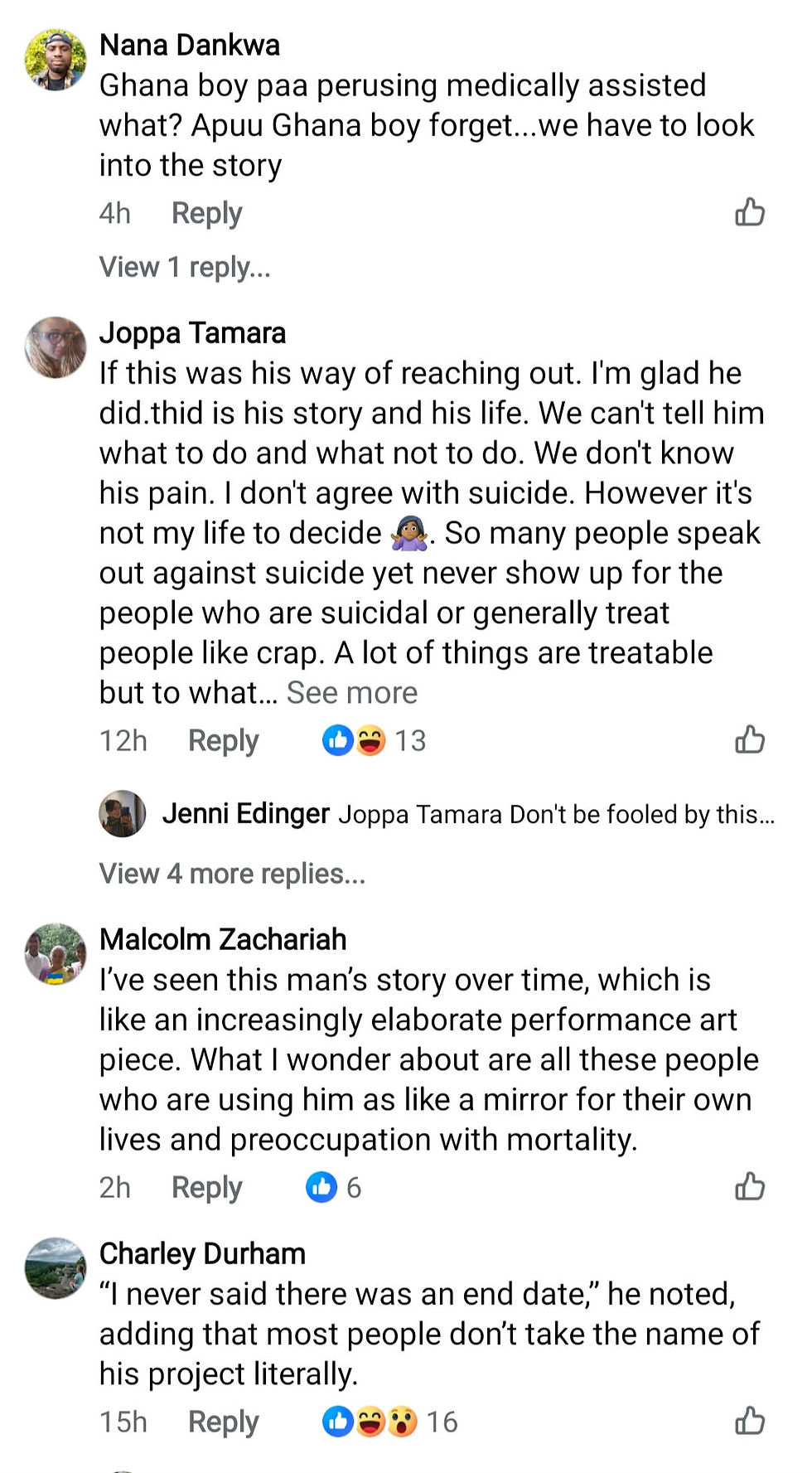Joseph Awuah-Darko: Visionary Artist or Master of the Long Con?
- frankachiedu
- Aug 12, 2025
- 3 min read
In December 2024, Ghanaian-British artist, curator, and entrepreneur Joseph Awuah-Darko, better known to many as Okuntakinte made an announcement that startled the art world and beyond: he planned to pursue assisted dying in the Netherlands, citing treatment-resistant bipolar disorder. What followed was The Last Supper Project, a whirlwind of intimate dinners with strangers around the world over 150 and counting each one framed as a chance to connect in his “final months.”

At first, his comment sections brimmed with compassion. People lauded his openness about mental health, admired his courage, and offered their homes and tables. But as months passed, a different mood began to surface: skepticism, frustration, even outright accusations of manipulation.
So who is Joseph Awuah-Darko and why is his story now splitting opinion down the middle?
The Rise of a Cultural Visionary
Born in London in 1996 to a wealthy Ghanaian family, Awuah-Darko grew up between worlds. By his mid-20s, he had carved a name in Africa’s cultural landscape founding the Noldor Artist Residency in Accra, Ghana’s first independent, non-profit artist residency, and later establishing the Institute Museum of Ghana. He collaborated with celebrated artists like Serge Attukwei Clottey and Gideon Appah, curated international exhibitions, and appeared on Forbes Africa’s “30 Under 30” list.
He was, by most accounts, one of the art world’s golden young stars.
Controversies in Parallel
The shine began to dull in late 2024. Multiple artists, including Foster Sakyiamah, accused Awuah-Darko of withholding large sums from the sale of their works—claims that, if accurate, amount to over USD 360,000 in unpaid proceeds. Legal action followed, along with public calls for accountability.

Amid these disputes, Awuah-Darko made his euthanasia announcement and launched The Last Supper Project. Some saw a genuine man seeking connection before an irreversible choice. Others saw a distraction from financial scandals.
Adding fuel to the debate, in May 2024 he publicly accused renowned American artist Kehinde Wiley of sexual assault, claims Wiley denied, countering with evidence he said suggested their interactions were consensual. Wiley has since issued cease-and-desist letters, calling the accusations defamatory.

The Last Suppers
The project itself is striking: Awuah-Darko accepts invitations to dine with strangers around the world, sharing conversation, art, and often a camera lens over beautifully set tables. Media outlets have described it as moving, poetic, and deeply human.

But in the comment sections, the tide has shifted. Questions abound: Is this an authentic farewell, or performance art in disguise?
Can one speak of a “final journey” while also planning new engagements, art projects, and now publicly an engagement to a partner he says is also ill? Is the romanticization of euthanasia in public art spaces helpful, harmful, or something murkier
Public Reaction: From Sympathy to Skepticism
The shift has been sharp. Where early reactions brimmed with empathy, later ones bristle with doubt. Some accuse him of “grifting,” milking the public’s emotions without ever intending to follow through with assisted dying. Others point to his privileged background as evidence he’s playing out an elaborate narrative.
Still, loyal supporters defend him fiercely, arguing that mental illness does not follow a linear path, and that his dinners are acts of profound vulnerability and connection in a lonely world.
Larger Questions This Story Raises
Joseph Awuah-Darko’s story still unfolding forces uncomfortable questions into the open:
Authenticity vs. Performance: In an age where vulnerability can be monetised and magnified online, how do we separate genuine struggle from narrative craft? The Ethics of Art and Illness: Should the public consumption of someone’s death journey be treated as art, or does that risk glamourising tragedy?
Power and Accountability in the Arts: How should allegations financial or personal be addressed when the accused is a celebrated cultural figure?
Timing and Public Perception: When multiple crises collide, do they illuminate deeper truths or simply muddy the waters?
In the end, Awuah-Darko remains a polarising figure a man at the intersection of creativity, controversy, and mortality. Whether you see him as a visionary, a manipulator, or something in between, his story speaks to the messy, blurred lines between public art, private pain, and the performance of both in our hyper-connected age.

And perhaps that’s the most unsettling part: we may never truly know where the performance ends and the man begins.
.png)







I’ve been following him for a while and he’s definitely an interesting character. What I can say though, especially as a Ghanaian myself, is that I am disgusted that he owes people back home money. It’s so hard to make it over there. Until that is resolved I don’t want to see any positive coverage. Brilliant article nonetheless !